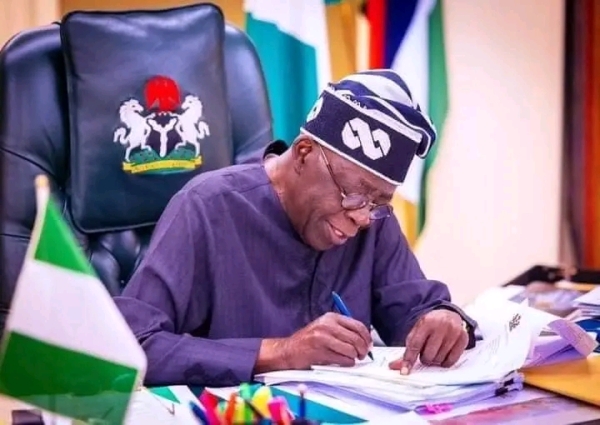The Presidency has justified President Bola Tinubu’s decision to appoint a sizable media team, describing it as a calculated move to improve communication with Nigerians.
During an interview on TVC’s Beyond 100 Days on Wednesday, Tinubu’s Special Adviser on Media and Public Communication, Sunday Dare, emphasized the importance of an extensive media team in fostering transparency and engagement with the public.
Dare said, “The President is the Commander-in-Chief. He builds his team.
“By law, he can appoint between 25 and 40 special advisers, as approved by the National Assembly. If you look at it, he is not even halfway through that.”
Recalled that President Tinubu, on Monday, November 18, reshuffled his media and communications team, appointing Bayo Onanuga, Sunday Dare, and Daniel Bwala as spokespersons.
That night, a statement clarified the structure: “These appointments underscore that there is no single individual spokesperson for the Presidency. Instead, all three Special Advisers will collectively serve as spokespersons for the government, ensuring effective and consistent communication of government policies, decisions, and engagements.”
With these appointments, the President’s media team now consists of 12 officials.
Dare stressed that the focus should not be on the number of aides but on their effectiveness in conveying government policies to Nigerians.
He compared the arrangement to the United States, citing its extensive media apparatus as a model.
Dare said, “Look at the American presidency—the largest democracy in the world. They have several layers of people speaking for the government at various levels, all singing from the same hymn sheet.
“What’s important is that we’ve seen a need to deepen communication and ensure Nigerians consistently understand the government’s policies and initiatives.”
Addressing concerns about the cost of governance, Dare highlighted Tinubu’s efforts to cut expenses in critical areas such as security and ministerial operations.
He said, “The number of security aides assigned to ministers and the fleet of vehicles they manage has been reduced.
“But beyond that, we are focusing on macroeconomic spending. Our debt service to revenue ratio has dropped from around 90% to 68%, and we’re steadily repaying 16 inherited loans. Nigeria is inching towards a $1 trillion economy.”
Dare urged Nigerians to focus on these “big numbers,” which he argued are critical indicators of the government’s progress.
He added, “We need to look at the bigger picture. Once you can bring down the big numbers, you free up resources for the country. I think we should give this President the benefit of the doubt. He has brought in core professionals to handle this job, and their work will speak for itself.”
He concluded by calling for patience and trust in Tinubu’s approach, assuring Nigerians that the expanded media team is a necessary step to foster transparency and build public trust in the government’s efforts.


